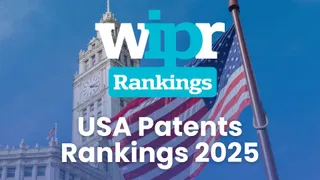
Sherlock Holmes copyright dispute resolved
The organisation which manages copyright protection for the Sherlock Holmes stories has been told authors may be able to use the character in future works without permission.
The US ruling means that, despite copyright only expiring on some of the stories, authors can depict the fictional detective without paying license fees or getting permission from the Conan Doyle Estate.
Sherlock Holmes was first created by Scottish scientist and author Sir Arthur Conan Doyle in the late 1800’s.
The majority of his work is already in the public domain in the US having been published prior to 1923. However, 10 of his short stories, published after 1923, remain under copyright protection.
The dispute relates to a case at the US District Court for the Northern District of Illinois.
It was first heard in February last year when US author Leslie Klinger attempted to publish an anthology called In the Company of Sherlock Holmes.
However, when publishing house Pegasus was contacted by the Doyle Estate to sign a licensing agreement, it refused and said it wanted a court to determine whether it could portray the character.
In its arguments, the estate argued that copyright protection for 10 short stories were not due to expire until 2022 and that the character should remain under complete copyright protection.
It also argued that as the later stories contained significant character developments for Holmes and his partner Dr Watson, it should protect the characters as a whole including their depiction in older works.
In a judgement published on December 23, Judge Ruben Castillo agreed that Doyle had continued to develop the characters and that they should stay protected until the remaining copyright runs out at the end of 2022.
However, Castillo said there were character elements, such as Holmes’s name and address, which were made available in earlier works and therefore not protected under copyright.
According to Jonathan Reichman, partner at Kenyon and Kenyon LLP in New York, the result was to be expected given US copyright rules.
“The rules surrounding works published before 1923 is very clear under US copyright law in that it will fall within the public domain,” said Reichman, adding that anything published after that date had the potential to be protected.
“The estate came up with what was a clever argument by saying that the characters were still evolving after the cut off period,” said Reichman.
“It’s a clever argument but it’s not a winning argument. The main basis of the characters were fully formed by the end of the pre 1923 stories and certainly contained enough elements for a new author to draw on.”
In a statement, Benjamin Allison, counsel for the Doyle Estate said there remained unanswered questions and that it was looking into an appeal.
“The estate hopes to appeal the decision so that Sherlock Holmes and many other significant characters created over a series of novels or stories receive protection for the full copyright term,” Allison said.
However, Allison added: “Even under the current ruling … all development of the Holmes and Watson characters by Sir Arthur in ten post-1922 stories remain fully protected by copyright. These ten stories—set at a variety of earlier points in the two men's fictional lives—contain significant elements of both characters.”
Klinger told the New York Times that he planned to continue writing his book.
“Sherlock Holmes belongs to the world, and this ruling clearly establishes that,” Klinger said. “People want to celebrate Holmes and Watson, and now they can do that without fear.”
Reichman added that he would expect an appeal from the estate despite it being a “long shot.”
“They [the estate] may feel as though they have nothing to lose – they put in a lot of effort so far so why not go for it.
However, Reichman added it was unlikely to set a precedent for authors failing to get a license to use works.
“I think it is fairly unusual to have a character portrayed across stories that straddled the 1923 line so it’s unlikely this issue will be presented again.”
Already registered?
Login to your account
If you don't have a login or your access has expired, you will need to purchase a subscription to gain access to this article, including all our online content.
For more information on individual annual subscriptions for full paid access and corporate subscription options please contact us.
To request a FREE 2-week trial subscription, please signup.
NOTE - this can take up to 48hrs to be approved.
For multi-user price options, or to check if your company has an existing subscription that we can add you to for FREE, please email Adrian Tapping at atapping@newtonmedia.co.uk

